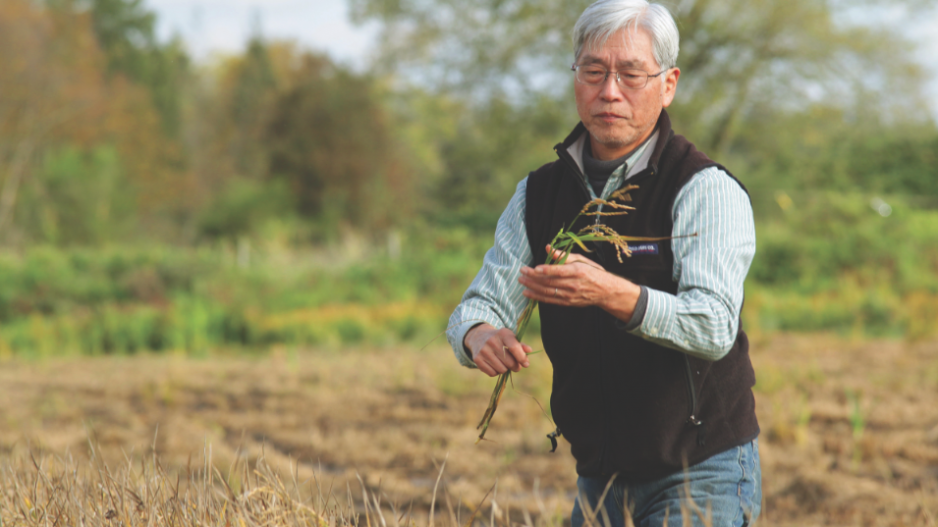By Glen Korstrom
Small-business owners can operate successfully by opening a business in a well-trod sector with reliable consumer demand and plenty of competition. Then there are the entrepreneurs who dare to do something never done before.
Artisan SakeMaker owner Masa Shiroki is firmly in the latter group.
He opened B.C.’s only sake production facility in 2007 and later branched out into being the province’s only rice farmer – first, to produce the raw material necessary to make his rice wine and then, by growing a different variety, to sell as table rice for the first time this year.
Shiroki continues to push boundaries and this summer won a big battle.
He has lobbied for years to persuade the B.C. government to give him the same perks for using a 100% B.C.-grown product in his alcoholic beverages as it gives grape and fruit wineries.
He wants to be considered what the government calls a “land-based winery.”
Land-based winery owners do not need to pay the government a 123% markup on their wines if they operate a winery on land adjacent to at least two acres where grapes used in their wines are grown, and they sell the wine directly to customers on-site or online.
The British Columbia Liquor Distribution Branch confirmed to Shiroki in a July email that rice qualifies as an agricultural product for land-based winery owners to use.
Because land-based winery owners can’t operate a second winery or tasting room, Shiroki would have to close his Granville Island facility.
“I’ve been working to get this for years, but I didn’t know that I would have to close on Granville Island,” Shiroki told Business in Vancouver.
He is now undecided about whether to sell his Granville Island sake winery, close it and open a new winery next to his rice fields or operate on Granville Island and lose the higher margins he could generate were he to move.
Vintage Law Group lawyer Mark Hicken told BIV that Shiroki’s problem would be solved if the B.C. Ministry of Justice’s liquor control and licensing branch permitted secondary tasting rooms to be away from a winemaker’s production facility.
The B.C. government’s parliamentary secretary for liquor policy reform, John Yap, recommended allowing secondary tasting rooms when he released his B.C. Liquor Policy Review report in late 2013. The B.C. government subsequently accepted all of Yap’s recommendations.
Shiroki fears that government action to make the change is being stalled because Australia, the U.S. and other trading partners argue that B.C. government moves to broaden preferential treatment for B.C. wineries contravenes trade agreements and World Trade Organization rules.
The B.C. ministry that oversees liquor changes told BIV in a statement that it is “exploring” making the change.
Shiroki is not letting uncertainty slow his business expansion.
He started growing rice to create a seed stock in 2011. That year, he grew 218 kilograms. He started making sake with some of the 600 kilograms of rice that he grew in 2012 and expanded production to 2.55 tonnes in 2013 – all from a two-acre plot in Abbotsford.
He added about 1.6 acres in Surrey last year and grew 3.13 tonnes of rice, including 844 kilograms of his first table rice, which is less starchy than sake rice.
All of the table rice either sold for $10 per kilogram to consumers at farmers markets and to restaurateurs or was sold wholesale to Abbotsford retailer Nature’s Pickin’s.
Production will increase substantially next year given that Shiroki is adding 10 acres to his current 3.6 acres of production.
“Production per acre should remain the same,” he said, “so our estimation is that we will increase our harvest substantially.” •




